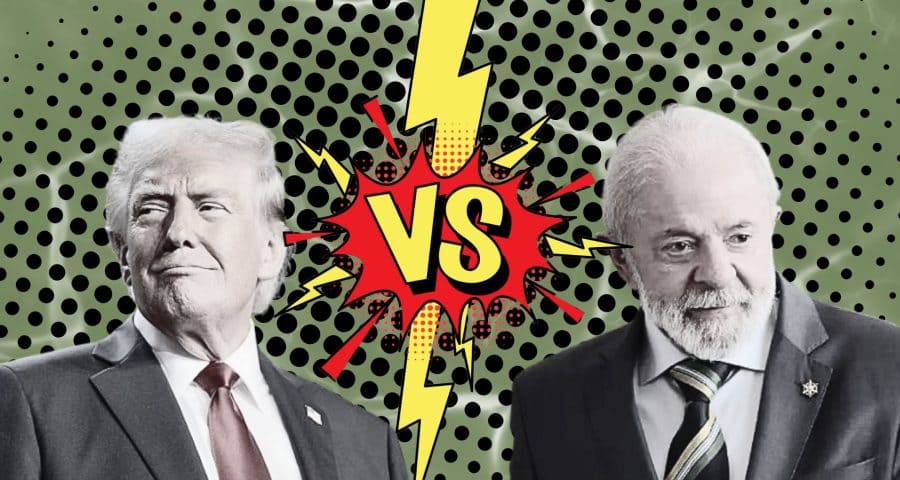
U.S. Tariffs and the Trade Dispute with Brazil: Implications for the Brazilian Crypto Market
Over the last few years, trade relations between the United States and Brazil have seen periods of both cooperation and tension. One of the most contentious issues has been the imposition of tariffs by the United States on Brazilian exports, and retaliatory measures considered or implemented by Brazil. While the trade war rhetoric has mainly centered around traditional sectors like steel, aluminum, and agriculture, a growing area of concern is its ripple effect on emerging financial ecosystems—particularly the cryptocurrency market in Brazil.
This article explores the background of U.S. tariffs, the current state of trade relations between the two countries, and the cascading consequences these have on the Brazilian crypto market. We’ll also examine why crypto is becoming an escape route for some and a battleground for others.
The Origin of Tariff Tensions Between the U.S. and Brazil
Tariffs have long been used as a tool of economic strategy, particularly by the United States. Under the Trump administration, tariff policies became a key feature of U.S. foreign policy, affecting allies and adversaries alike. Brazil was not immune. In 2018, the U.S. imposed tariffs on Brazilian steel and aluminum, citing national security under Section 232 of the Trade Expansion Act. Although Brazil was initially granted an exemption, it later faced quotas and conditional treatments.
Under the Biden administration, the focus shifted more toward environmental and human rights concerns. However, trade disputes remained. Agricultural trade, ethanol, aircraft manufacturing, and even digital services have all been flashpoints. Brazil, in turn, has threatened retaliatory tariffs on U.S. goods such as ethanol and other agricultural imports.
These disputes are not just economic in nature—they are deeply political. Both countries have used tariffs to assert sovereignty, protect local industries, and negotiate better terms on various multilateral agreements.
The Economic Impact on Brazil
Tariffs from the United States can significantly hurt Brazil’s economy, especially when they target key exports. Steel and aluminum are major export sectors for Brazil, and U.S. tariffs can reduce demand, drive down prices, and lead to job losses.
Brazil's agricultural sector also feels the heat. The U.S. and Brazil are both agricultural powerhouses and direct competitors in commodities like soybeans, corn, beef, and poultry. Tariffs or subsidies favoring U.S. farmers can make Brazilian exports less competitive, affecting foreign exchange earnings.
Moreover, uncertainty in trade relations drives volatility in the Brazilian real (BRL), increasing the cost of imports and contributing to inflation. All of these economic challenges have direct and indirect impacts on the investment climate in Brazil—including in the burgeoning crypto market.
Why Brazilian Investors Are Turning to Crypto
Crypto adoption in Brazil has surged over the past few years. Factors such as inflation, currency devaluation, high banking fees, and limited access to global investment products have pushed Brazilians to seek alternatives. Cryptocurrencies like Bitcoin and Ethereum offer a form of financial sovereignty that resonates with many in Brazil, especially in times of economic or political uncertainty.
As tariffs increase financial pressure on traditional markets and reduce foreign investment in Brazil, the domestic population is increasingly looking toward digital assets for protection, diversification, and opportunity.
Here are a few specific reasons why crypto is growing in popularity in the context of U.S.-Brazil trade tensions:
Currency Hedge: With the BRL weakening due to trade volatility, crypto assets serve as a hedge against currency devaluation.
Access to Dollar Exposure: Many stablecoins like USDT and USDC allow Brazilians to access dollar-equivalent value without traditional banking.
Global Access: Cryptocurrencies provide Brazilians with an alternative to access global markets beyond trade and tariff restrictions.
Decentralization Appeal: In an environment of increasing government intervention, decentralization has an ideological pull for many investors.
How U.S. Tariffs Affect Crypto Adoption in Brazil
At first glance, tariffs and trade disputes might seem unrelated to crypto. But they’re more interconnected than they appear. Here’s how:
1. Currency Volatility Drives Crypto Demand
Tariffs often lead to currency instability. As Brazilian exports become more expensive or limited due to U.S. trade barriers, the BRL weakens. A weaker real means higher inflation and reduced purchasing power for everyday Brazilians.
When the national currency is unstable, many people turn to Bitcoin and stablecoins to preserve value. This is not theoretical—it’s already happening. During periods of BRL depreciation, trading volumes on Brazilian crypto exchanges spike noticeably.
2. Decreased Investor Confidence Spurs Diversification
Tariffs and trade wars signal unpredictability in economic policy. For local and foreign investors alike, this discourages traditional investments and encourages portfolio diversification. Cryptocurrencies, although volatile, represent an asset class not directly influenced by the geopolitical chessboard of tariffs.
For Brazilian retail and institutional investors alike, crypto becomes a way to diversify and mitigate exposure to local economic headwinds.
3. Increased Interest in Blockchain-Based Trade Solutions
One fascinating side effect of U.S.-Brazil trade disputes is the exploration of blockchain solutions in supply chains and cross-border settlements. Companies are increasingly looking for decentralized solutions to verify trade flows, manage logistics, and avoid centralized chokepoints impacted by government restrictions.
Brazilian exporters are also experimenting with blockchain platforms that allow them to settle transactions in stablecoins or other cryptocurrencies, reducing their dependency on traditional foreign exchange routes that might be affected by sanctions or tariffs.
Challenges Facing the Brazilian Crypto Market Amid Trade Tensions
Despite crypto's growing popularity, the road ahead isn’t without challenges. Increased crypto adoption in a politically volatile environment also attracts regulatory scrutiny. Brazil’s government has been stepping up efforts to regulate and tax crypto activities, especially as capital flight increases.
Additionally, the following challenges loom:
AML & KYC Regulations: As crypto becomes a vehicle for capital protection, regulators worry about illegal financial flows, money laundering, and tax evasion.
Regulatory Alignment with the U.S.: Brazil often aligns its financial compliance measures with global partners, including the U.S. Any pressure from the U.S. to regulate or restrict crypto could be mirrored in Brazilian policy.
Technical Infrastructure Gaps: Although crypto is booming, many Brazilians still lack access to reliable internet or digital literacy, limiting full-scale adoption.
Volatility Risk: Crypto markets themselves are volatile. While they offer protection from fiat instability, they also pose financial risks, especially for retail investors.
Strategic Opportunities for the Brazilian Crypto Ecosystem
Even with challenges, the friction between the U.S. and Brazil opens strategic doors for the crypto ecosystem:
Stablecoin Innovations: Brazil could become a testing ground for real-world stablecoin usage in trade settlements and remittances.
DeFi Access: Decentralized finance platforms can offer Brazilians access to credit, lending, and yield opportunities outside of traditional systems, helping to bypass limitations brought on by trade slowdowns.
Blockchain in Agriculture: Since agriculture is a key sector impacted by tariffs, blockchain can provide transparency and efficiency in tracking Brazilian commodities, making them more attractive globally.
Digital Sovereignty Movements: Brazil could position itself as a leader in Latin American blockchain innovation, asserting digital independence in the same way it strives for economic independence.
Conclusion
The ongoing trade tensions between the United States and Brazil, particularly in the form of tariffs, are more than just a political spat. They have real economic consequences, from affecting the Brazilian real to reshaping investor confidence. In this evolving landscape, crypto is emerging as both a safe haven and a strategic tool.
For Brazilian investors, crypto offers a lifeline amid economic instability. For policymakers, it presents both an opportunity and a challenge. And for the global crypto community, Brazil’s experience offers a fascinating case study in how macroeconomic policy and blockchain innovation collide.
Whether the trade dispute escalates or subsides, one thing is clear: crypto is no longer on the sidelines in Brazil’s economic narrative—it’s becoming a central character.
